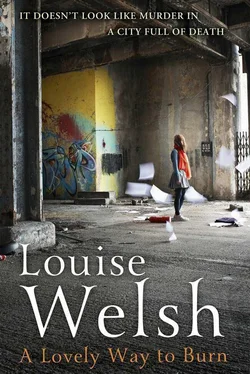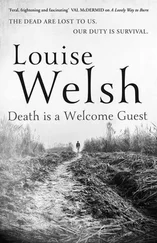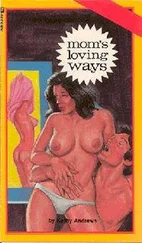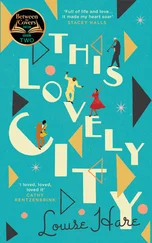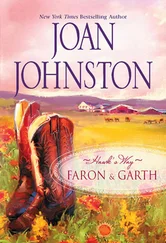‘He was investigating you.’
‘So what?’
‘You don’t think it’s a coincidence? Frei and Simon were both in a position to expose you and Buchanan and they both died under suspicious circumstances. Hope Black is dead too. I found her lying on the floor of Simon’s apartment. Her head had been smashed in.’
‘The whole world is dying. Everyone except for you.’ Dr Ahumibe leant over and retched into the wastepaper basket again. The sounds he made were dry and painful and Stevie felt her own stomach clenching in response. When the doctor looked up there was spittle on his chin. He wiped it on the sleeve of his shirt. ‘Xander was devastated by Simon’s death. He came to the hospital to break the news to me. At first he was too upset to speak. We’ve known each other most of our lives but I’d never seen him like that. I thought perhaps something had happened to William, his son. Later, after he’d broken the news, Xander told me that when he saw Simon curled up dead in his bed, it was like seeing him again as a boy, back when we shared a dorm at school. The image haunted him.’
Stevie leant forward.
‘Buchanan said he saw Simon dead in his own bed? Are you sure he wasn’t referring to when he saw him at the morgue?’
‘No, it was before Simon was brought to the morgue. Xander told me there was a picture of the three of us, taken when we were students, hanging on the wall of Simon’s bedroom. He found it deeply moving. We were as close as family.’
Stevie remembered something Derek had been fond of repeating, one in a series of self-composed homilies Joanie had christened ‘Sayings from the Policeman’s Notebook’. She said it out loud.
‘Families are the most dangerous units known to society. Most abuse, violence and murders happen inside families.’
Stevie unlocked the door and glanced into the corridor. The lights had gone out and darkness shrouded the ward, hiding the bodies still tucked tight beneath their sheets. She reached into her satchel, took out the boxes of pills and dropped them on the desk in front of John Ahumibe.
The doctor looked up at her. ‘I keep seeing the children’s faces. It was my duty. I couldn’t leave them to suffer on alone.’
Stevie turned her back on him and closed the door quietly behind her.
The hospital was a nightmare of darkened corridors. Stevie had told Ahumibe that she could not afford to give in to fear, but terror fluttered in her chest. The building felt alive, as though the people who had died in the hospital wards had slipped into the fabric of its walls and were watching, and waiting.
Stevie wrapped her scarf around her face and counted each turn beneath her breath, trying to focus on the challenge of navigating her way to an exit. She kept her torch off and her hand on the gun. The sound of howling echoed up ahead and she corrected her route to avoid it. She saw other people ghosting through the dark, and pointed the gun straight ahead, both hands gripping the stock, so there could be no mistaking her urge for solitude.
Rats moved, swift and busy, along the walls, and Stevie knew that she would have to leave London soon, before other diseases took hold. Sudden footsteps charged along the corridor and she pinned herself flat against the wall, melting into the darkness, until the runner rushed by, a panicked breeze of pumping arms and pounding legs.
The dead were everywhere. They were slumped on waiting-room chairs, like a Tory indictment against NHS inefficiency, stretched out on beds, sprawled across desks, or lay where they had fallen, limbs tangled in positions impossible to hold in life.
Moans and harsh rattling breaths echoed from the shadows of abandoned rooms, and Stevie knew without a doubt that there was no God. If there were, he or she would have saved a better person than her, one who was ready to sacrifice themselves to the care of the dying, rather than continue a quest for the truth about an already dead man.
A man stepped out of the shadows, leading a little girl of around six or seven years old along an empty corridor. Stevie moved into the centre of the hall and aimed the gun at his head.
‘It’s all right,’ the man said. ‘She belongs to me.’
Stevie looked at the child and asked, ‘Is that true, sweetheart? Is this your daddy?’
The girl had one hand gripped in the man’s. The other was wrapped around a disreputable-looking toy monkey whose fur was matted from over-loving. She stuck her thumb in her mouth and shook her head.
‘I’m her uncle,’ the man said, his eyes on the gun.
Stevie looked at the little girl, who kept her thumb in her mouth and whispered, ‘Uncle Colin.’
‘Are you happy to go with Uncle Colin?’
The girl had the stunned stare of a road-accident victim. She nodded and the man looked relieved. He said, ‘You can come with us, if you like. There might be safety in numbers.’
Stevie thought he was probably right, but she shook her head. ‘No thanks.’ The man glanced nervously at the gun again and Stevie wondered if he was considering making a grab for it. ‘You’d best keep on going,’ she said, her finger on the trigger, the barrel still pointing at the man’s head. She watched until they vanished into the dark, like phantoms, the sound of her own breath loud in her head.
Once, a hand reached out, pale against the black, and a woman whispered, ‘Water,’ but when Stevie returned, with a plastic cup filled from a water cooler, the woman was gone. Her disappearance troubled Stevie and she upped her pace, holding on to the bannister as she ran down a darkened staircase towards the hospital exit, aware that to trip and break a leg now would mean a slow death.
The satnav had stopped working. Stevie drove towards the industrial estate that housed Buchanan’s lab, slowing the Jaguar frequently to consult a dog-eared A to Z she had found in the glove compartment. She had sealed the car’s vents and made sure that its windows were closed tight, but an acrid smell that tasted of burnt cinders and melting plastic slipped inside and caught the back of her throat. The sky was full of fluttering lights and strange glows, and she was forced to alter her route twice to avoid fires that had taken hold of whole city blocks. There were fewer looters now, though traces of them lingered in smashed windows and abandoned booty. Shoals of carrier bags cartwheeled along empty streets, like plastic tumbleweed. Once she saw a man hanging from a railway bridge. The bridge spanned a main road and she had no choice but to drive beneath, aware of his body gently swinging above her, his feet pointing towards the earth like the arrow of a compass directing the way to Hell.
Stevie had programmed the car radio to scan the stations, but there was only one voice on the airwaves, a recording of a Scottish woman repeating a mantra about the need to remain calm . . . stay indoors . . . drink fluids . . . avoid contact with anyone showing signs of infection . . . observe the curfew . . . Stevie turned the radio off.
Dusk was shifting to full dark. The occasional streetlamp still glowed warm and miraculous, like a message from God, but most were out, and Stevie navigated by the beam of the Jaguar’s headlights. She wondered if John Ahumibe had been right about the virus originating in outer space, and pictured an asteroid, plummeting to earth, the way it must have lit up the sky. Stevie wished that she had witnessed the thrill of its arrival, before anyone knew what it would bring. Occasionally her headlights picked out figures by the side of the road, but she didn’t alter her speed, except once, when a man who looked like Simon stuck out a hand, hailing her as if she were a cab, and her foot hit the brake of its own accord. The man ran towards the Jaguar, but Stevie saw that he was a stranger, and left him behind in the darkness.
Читать дальше
